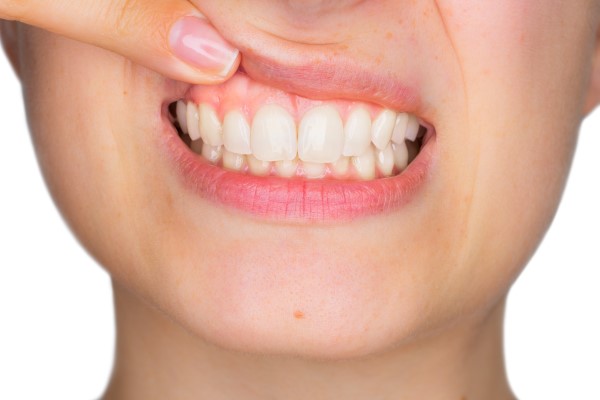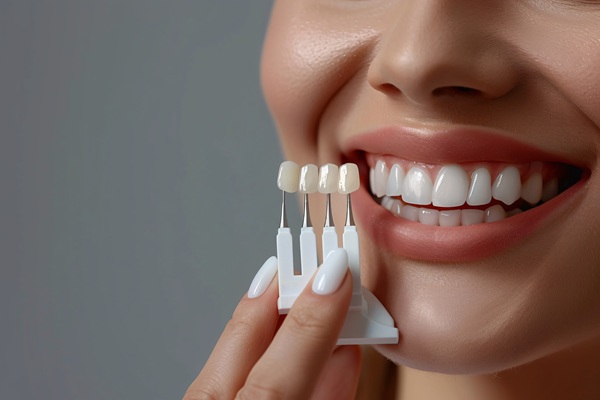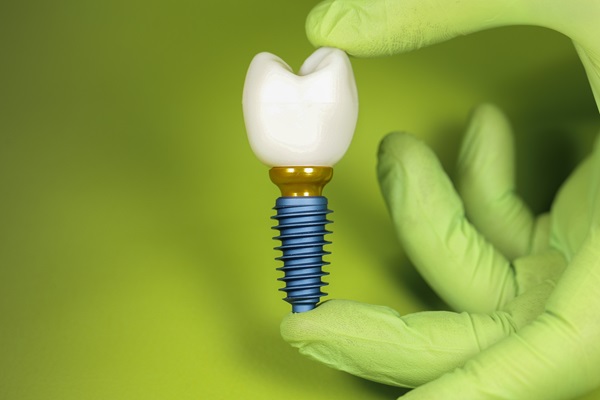The Stages of Gum Disease

Most adults experience some degree of gum disease during their lifetime, but it does not necessarily lead to tooth loss. Understanding how to identify and treat the stages of this common ailment can prevent it from spreading and reduce its impact.
What is gum disease?
Gum disease is an infection of the gum tissue surrounding the teeth. It starts with a build-up of bacteria that form a sticky substance called plaque over the teeth. The trapped food particles feed bacteria that migrate to the gums, eventually causing the following symptoms:
- Swelling and pain
- Redness and bleeding
- Loose teeth
- Persistent bad breath
- Foul taste in the mouth
- Change in bite
What are the stages of gum disease?
There are four stages of infection that a dentist can identify. The stage determines the treatment.
Gingivitis
The earliest manifestation of gum disease is gingivitis, characterized by bleeding gums and bad breath. Unless there is pain or discomfort, people often ignore these symptoms. Fortunately, gingivitis is reversible with professional dental cleanings and rigorous home care.
Early periodontitis
Swelling and bleeding during flossing are symptomatic of early-stage periodontitis. Bacteria cause gaps between the teeth and gums and begin to wear away at the supporting bone. This condition cannot be reversed, but it is possible to prevent further progression by increasing the frequency of deep dental cleanings and diligent home care efforts.
Moderate periodontitis
Painful gums that bleed or ooze pus indicate moderate periodontitis. Pockets between the teeth and gums deepen, and bone loss increases. Gums also begin to recede, exposing tooth surfaces that they usually cover. Cleaning and scaling are necessary to prevent bacteria from migrating to the bloodstream.
Advanced periodontitis
Pain, bleeding, and severe bone and tooth loss occur at this stage. Surgical intervention is necessary to remove bacteria from deep pockets. Patients have a much higher risk of systemic health problems caused by bacteria entering the bloodstream.
Who is at risk?
Gum disease generally increases with age, and it is relatively common among the elderly. Others who are especially susceptible include:
Anyone with an autoimmune disease
Autoimmune diseases can cause symptoms that manifest in the mouth and affect the teeth. For example, patients with Sjogren's syndrome cannot produce adequate saliva flow to wash away bacteria-breeding food particles. These patients may experience any stage of gum disease.
Anyone who smokes
Smoking can adversely affect the immune system, preventing it from combating oral bacteria. For this reason, the progression to late-stage periodontal disease can be rapid among smokers.
Women experiencing hormone changes
Hormonal changes at various life stages and pregnancy can cause increased blood flow to the gums, decreased saliva production, bone loss, and an inability to fight infection. The consequences range from reversible gingivitis to permanent tooth loss.
Anyone with poor oral hygiene
Most dentists advise their patients to brush at least twice per day and floss at least once per day. Individuals who fail to follow these guidelines are vulnerable to advanced gum disease from an accumulation of oral bacteria.
Conclusion
Regular dental check-ups and cleanings and diligent home care can identify early-stage gum disease and keep it from advancing. A healthy mouth can also prevent a wide range of unwanted complications throughout the body.
Request an appointment here: https://dicksonfamilydental.com or call Dental Partners Dickson at (615) 931-4088 for an appointment in our Dickson office.
Check out what others are saying about our dental services on Yelp: Gum Disease in Dickson, TN.
Related Posts
Gum disease, also known as periodontal disease, poses a critical threat to your oral health when it is left untreated. While this oral health condition may seem mild, it can progress rapidly. Not only can gum disease affect your oral health, it can impact your overall health and quality of life. Understanding the consequences of…
When undergoing a dental appointment, patients can request an oral cancer screening to know if they are at risk of developing the condition. The screenings are meant to detect early signs of the condition before it reaches a more advanced stage.The 5-year survival rate is at about 50 percent, so it is highly vital to…
There is no one-size-fits-all answer to whether a smile makeover or a single cosmetic dental treatment is better. A smile makeover includes multiple procedures to improve the overall shape, color, and alignment of a smile in a planned order. However, some individuals may only need one cosmetic dental treatment to achieve their smile goals. The…
Tooth implants have become a popular replacement option for individuals with missing teeth. Also known as dental implants, this replacement option is one that requires a semi-invasive oral surgery. The term oral surgery often sparks fear in individuals due to the potential for pain; however, what is important to know is that tooth implants are…


